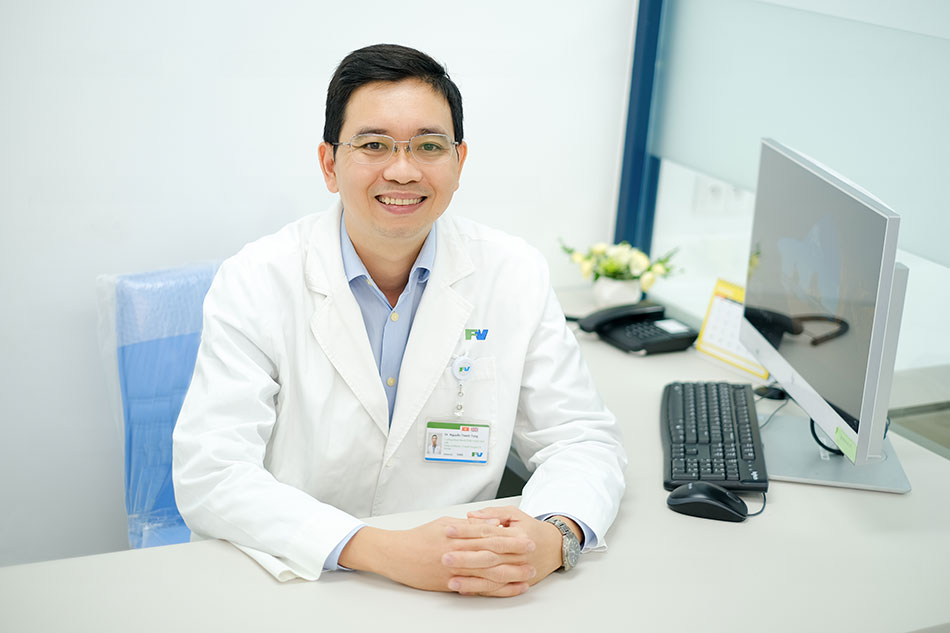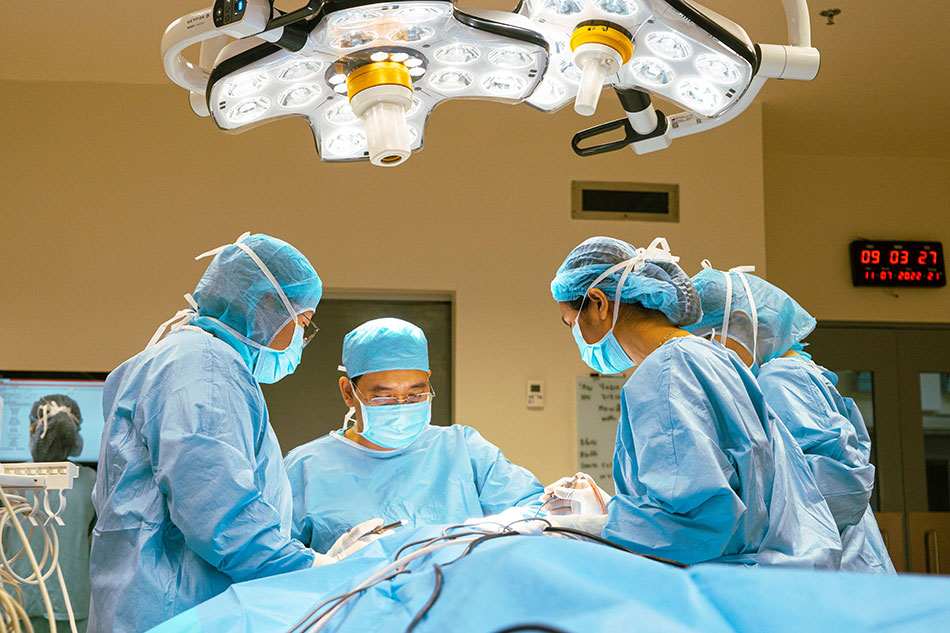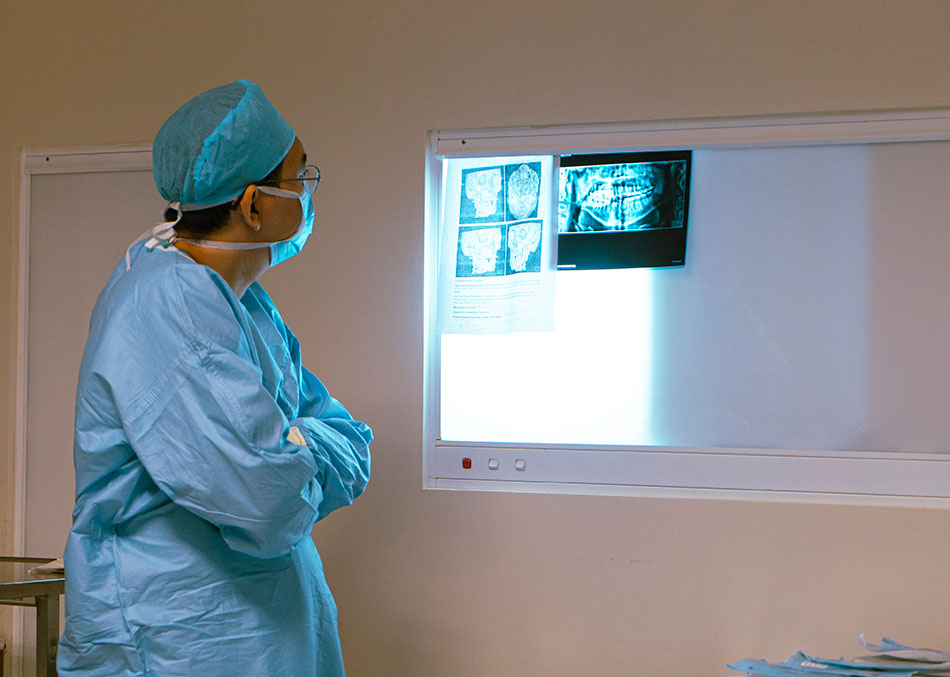FV’s Head of Maxillofacial & Dental Department Nguyen Thanh Tung, MD, PhD, dreamed of becoming a doctor since childhood. He believes that in order to practice medicine well, a talented surgeon requires not only needs to continuously learn, but also be very strict with themselves and their work.
Helping people have a beautiful smile
When meeting Dr Tung, a tall man of nearly 1.8 metres, no one would think that he endured constant illness throughout his childhood. He recalls sitting in a nutrition seminar and thinking that the image of a sick boy reminded him of himself as a malnourished child. But an upside of regular visits to the doctor was that Tung grew to love the medical profession and he hoped that one day, he could also cure people.

Nguyen Thanh Tung, MD, PhD, Head of Maxillofacial & Dental Department, FV Hospital
When he became a doctor, he chose to pursue a specialty that suits him. Dr Tung shared: “I always wanted to help more people have more beautiful teeth and improve their smiles, as well as adjust facial aesthetics after accidents, so that my patients can feel more confident.” Given the large number of dental offices in Vietnam, that wish doesn’t seem difficult to fulfil. But many people don’t realise that, in order to treat maxillofacial diseases well, the journey to become a maxillofacial surgeon is long and arduous.
After six years of difficult study in a medical university, doctors who want to specialise in the maxillofacial field must attend postgraduate classes, including surgical residency, intensive training courses and a hospital residency, for at least three years, as well as complete a medical residency. “Then it requires another five years of experience on the job while the income is very modest, which is why many of my colleagues chose not to be a maxillofacial surgeon,” said Dr Tung. His passion for learning how to utilise new technologies is like a locomotive, pulling the wagons of knowledge, experience and passion firmly along on Dr Tung’s journey to becoming a surgeon.

Dr Tung is lucky in that he is very passionate about technology and always wants to acquire new knowledge on his journey to becoming a surgeon.
When he assumed the role of Head of Maxillofacial & Dental Surgery, Dr Tung also showed his interest in technology and science. He has proposed many modern techniques, such as 3D tomography, and equipped the Department with a new system of maxillofacial surgical instruments. To create beautiful smiles, Dr Tung pays special attention to building a highly skilled professional team which not only provides dental care, but also orthodontic services, treatment of maxillofacial diseases, and maxillofacial surgeries to correct pathology and aesthetics.
The operating model created by Dr Tung has the advantage of focusing on the patient, when dental care, maxillofacial treatment and aesthetic services are all at the same point. “I want to take advantage of the professional, international environment at FV to offer patients a safe and closed treatment process for maxillofacial surgery,” emphasised Dr Tung.
“I am open to any comments”
The image of Dr Tung reflecting in front of the operating room door, or pausing prior to the operation to carefully review the patient’s X-ray film, is much more serious than his usual cheerful, upbeat attitude. Before surgery, Dr Tung checks all tools and equipment with his team. Dr Tung also actively researches and proposes new equipment in maxillofacial surgery to ensure his colleagues in the department have the best practice environment.
Dr Thanh Tung explained: “I am meticulous and a perfectionist, so when I do something, I want it done to the best standard possible.” This personality trait is an advantage for surgeons, but in everyday life it can cause many obstacles. Typically, people who offer suggestions and solutions to colleagues, friends, or even family members are rarely open to having an exchange, and can respond negatively to being challenged.

Dr Thanh Tung carefully examines the patient’s film before surgery
While it’s uncomfortable to be faced with that situation, Dr Tung is still loyal to his opinion: that it is always necessary to discuss how to find the best way to accomplish a goal, both in surgery and in day to day life. “I enjoy frank discussions in the spirit of mutual development. I am always open to suggestions, as well as ready to collaborate with and support my colleagues to improve the team,” said Dr Tung. His inherent straightforward nature, along with many years of pursuing a doctorate in medicine in Japan, made this trait even more apparent in him.
For Dr Tung, his approach is not about confronting or causing difficulties for others, but the responsibility of the majority. He knows that being committed to securing the best treatment outcomes for patients requires constant assessment, discussion and adjustment. Dr Tung shared: “For a doctor, the saddest thing is not being able to meet our responsibility to ensure patients have a better quality of life after treatment.”
The goal to bring a beautiful smile to many people is no longer difficult to achieve due to advancements in modern medicine. However, Nguyen Thanh Tung, MD, PhD, cherishes the ongoing development of the dental industry and school dental healthcare models. The Japanese have a saying: “Great hopes make great people.” While Dr Tung does not intend to be a great person, he hopes to bring good health to the community around him.

 Vi
Vi 












